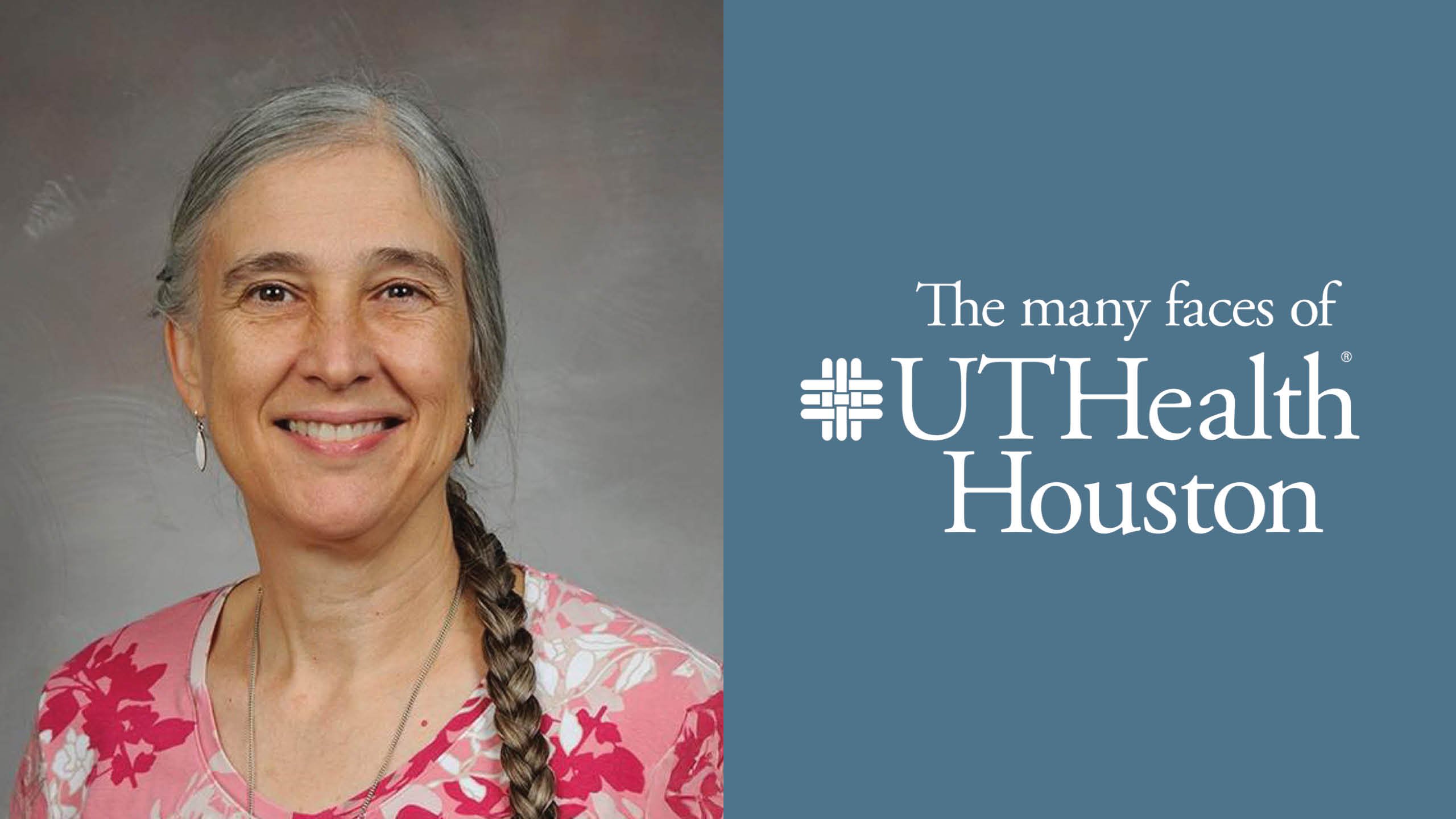The Many Faces of UTHealth Houston: Michelle Barratt, MD, MPH

[as featured in the February issue of Inside University News]
As a fourth grader, Michelle Barratt, MD, MPH, dreamt of becoming a teacher, but those dreams were nearly dashed when her best friend’s mom told her she was not patient enough to teach children.
Instead of letting it deter her from caring for children, not only became a teacher — a professor at UTHealth Houston, to be precise — but also a pediatrician, mother, and spouse to physician and astronaut Michael Barratt, MD, MS.
The family practice
Since Michelle’s father was a pathologist, she thought being a doctor meant “doing autopsies and looking under microscopes,” and she was sure she did not want to do that.
It wasn’t until she completed premed studies at the University of Washington, where she also met her husband, that she decided to pursue medical school with a focus in pediatric care.
The couple bonded in the campus library as freshmen and continued dating throughout college. They married their senior year, and both soon began medical school at Northwestern University Feinberg School of Medicine — Michelle pursuing pediatric medicine and Michael studying internal and aerospace medicine.
During various rotations at the medical school and while working at a local Chicago hospital, Michelle noticed most of the pediatricians she worked with focused on becoming specialists, such as hematologists and neonatal intensivists, which was something she did not necessarily enjoy.
“I knew I wanted to do outpatient pediatrics,” she said. “I wanted to treat people and practice evidence-based medicine.”
Houston and NASA
The Barratts both completed medical school in 1985 and moved to Houston in 1991 following Michael’s second residency. Michael started as a physician at NASA, and Michelle became an assistant professor at McGovern Medical School at UTHealth Houston.
Traveling frequently throughout his career at NASA, Michael’s work has taken him to Russia, Japan, and Germany. His first trip to space was in 2009, and he recently returned from his latest mission to space in October 2024.
While Michael travels, both around the world and outside of it, Michelle focuses on the balance between seeing patients and continuing her research in pediatric medicine. When their children were younger, she also coordinated their school pickups, extracurricular commitments, and daily activities.
With a growing family and a spouse who had an equally demanding career, Michelle understood how important it was to have systems in place for her family to function successfully. Now with adult children, she credits her nanny, Brenda, and support system for making it all possible.
“It turns out you get a lot more sympathy and support when your husband is in space,” she said with a smile.
Communication as a factor to success
Throughout her decades-long career, Michelle has learned thorough communication between doctors and patients is an essential part of health care. This is a lesson first taught by her father, who often assisted other physicians with helping them tell patients their diagnoses in a way they could understand.
“Now, as a pediatrician, I know that I can’t always save a patient or keep a family from getting unexpected news, but I can listen, I can sit, and I can share experiences that I’ve had with other families,” Michelle said.
Today, Michelle teaches future doctors at UTHealth Houston the importance of this success factor through communication-focused workshops and class lectures to third-year medical students. She has earned multiple accolades and awards, including the Leonard Tow Humanism in Medicine Award in 2017 and The John P. and Kathrine G. McGovern Distinguished Faculty Award in Professionalism Education in 2024.
She also has a special love for her class, “Healer’s Art,” an elective for first-year medical students that connects them with their experiences of what they thought they had to leave behind to attend medical school. The class focuses on loss and grief, awe and mystery, and communication building for students.
For Barratt, it turns out she was patient enough to teach after all, to both children and their parents during appointments at UT Physicians, and to future health care professionals in college lecture halls.
